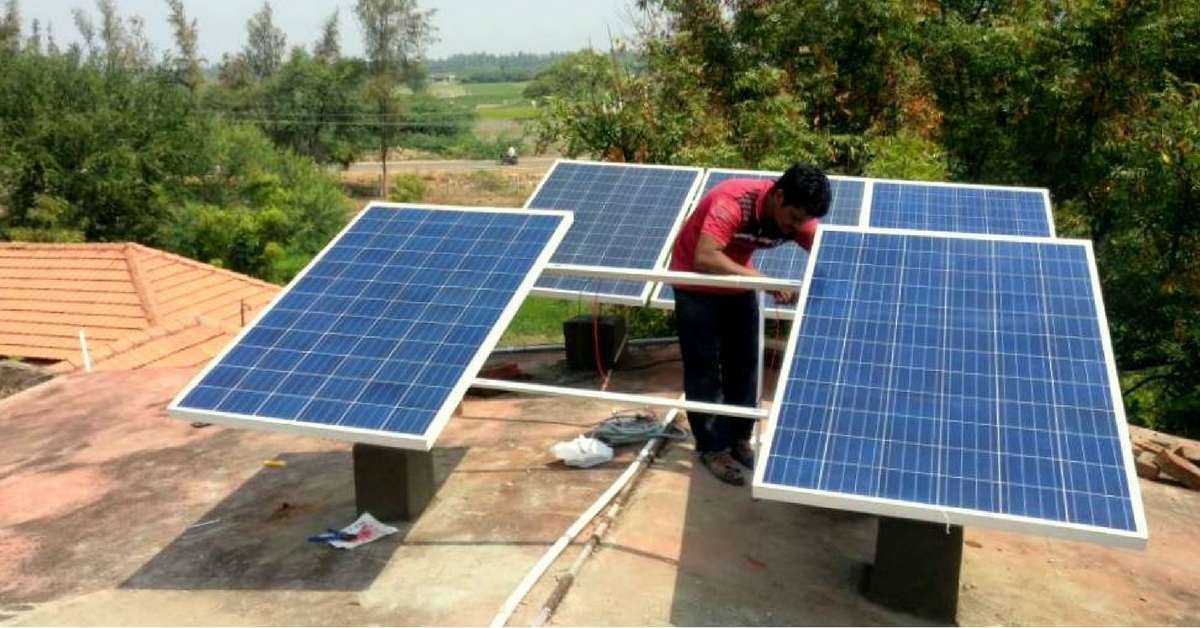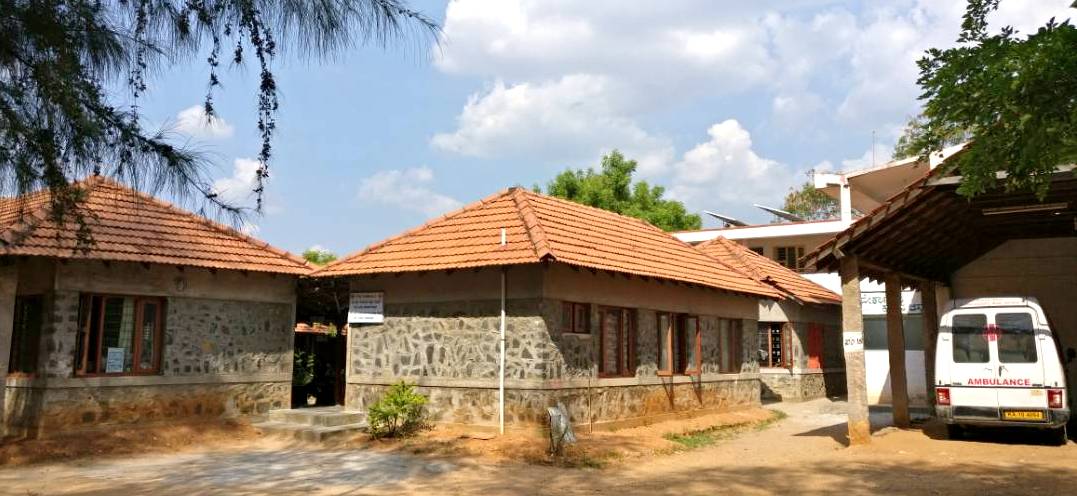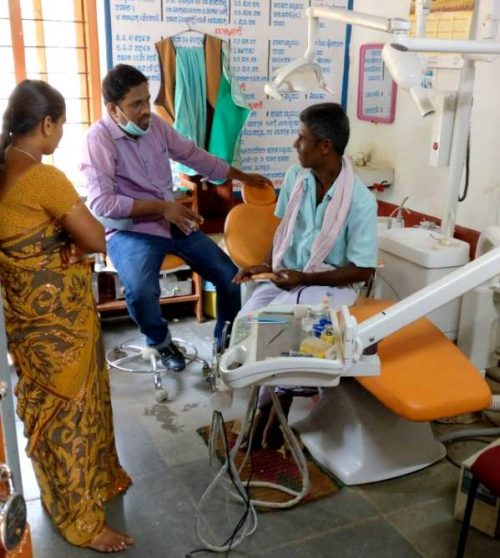TBI Blogs: How Solar Power Is Improving Healthcare Delivery in a Small Hamlet in Karnataka
Solar power is improving healthcare delivery in the foothills of the BR Hills in Karnataka through a unique public-private partnership.

An extensive network of over 28,000 Primary Health Centers (PHCs) serves as the backbone of public healthcare in rural India. Despite this reach on the ground, access to quality care is a serious issue, since PHCs are often too under-staffed, under-financed, under-equipped, or under-serviced to be able to provide round-the-clock care.
Reflecting the deficiencies in the public health system, a 2015 NSSO survey found that over 72 % of the rural and 79 % of the urban population rely on private hospitals for treatment. The average cost of treatment in a private hospital is four times that of a public hospital, and that is not the only problem. Communities in remote, rural areas have to travel long distances in difficult terrain to be able to access private healthcare. Many do not even make it.
While the public health system is dealing with these larger problems, access to reliable electricity tends to get sidelined in being considered a key enabler for quality care. Maharashtra, Chattisgarh, Tripura, and other State Governments have solar powered PHCs in the recent past. However, there is a need to understand how to customize decentralized energy systems to best meet local healthcare and energy needs, and therefore optimize the use of the government’s limited financial resources.
The beauty of decentralized energy provision is not only in improving energy access to health centres, but also in its ability to change the way healthcare is delivered in the last mile.
SELCO Foundation has worked with different health practitioners across different contexts and geographies to leverage decentralized renewable energy for improved health service delivery. In each case, the systems were designed after critically assessing current and future usage of the centres, the demographic and geographic context they are situated in, and the energy efficiency of medical equipment.
By the hills
The foothills of BR Hills in Yellandur Taluk, Chamarajanagar district in Karnataka is home to people of the Soliga tribe, a scheduled tribe with a population of about 20,000. The lack of adequate basic healthcare in this region of widespread leprosy led Dr. H Sudarshan to establish a small clinic here in 1980. He subsequently established the Karuna Trust (KT) in 1986, which currently manages 68 Primary Health Care Centres (PHCs) in six states of India.
In 1996 KT took over the reigns of Gumballi Primary Health Center, which is till date one of the pioneering examples of Public Private Partnership with the Government of Karnataka. Gumballi PHC stands out by offering services such as OPD, eye care, dental care, labour room, eye operation theatre, pharmacy, and laboratory, which is beyond what PHCs typically offer.
With poor quality of power supply, one of the challenges that the Gumballi PHC faced was access to energy for conducting surgeries in the eye OT, dental clinics, and other services provided at the health centre. During the power cuts, the dental patients had to wait for hours, or appointments had to be cancelled. A frequently-used diesel generator served as back-up for all the clinic’s loads, adding significantly to operational expenses.
It is not uncommon to find generators in many government-run PHCs as well. However, the operational expenses provided to the PHCs rarely support the cost of running these generators.
There are plenty of examples of doctors spending from their own pockets to keep the generators on during emergencies.

As an alternative, SELCO worked with Karuna Trust to design an optimized 3.2 kW solar system for the PHC. This system provides backup for the delivery room, eye operation theater, and the dental unit, apart from the core PHC.
In the months subsequent to the installation, there has been 60 % saving of monthly energy expenses at the PHC. More important is the fact that we don’t have to turn back patients due to lack of power supply. This is very important for patients, as every trip to the PHC means losing a day of labour. The confidence levels of resident medical staff too have improved significantly.

“We are very happy that the dental unit connects to the solar. Now we have round-the-clock power to run the compressor and dental chair. Before, we would send the patients back home due to power cuts, or they had to wait for long hours. Now we can do more procedures due to uninterrupted power supply. Now we also see many more patients – in fact, double the previous numbers.” – Dr. Sagar, BDS, Gumballi PHC
Karuna Trust is working with SELCO to solar-power 10 more PHCs in Karnataka, Arunachal Pradesh, and Meghalaya. Each system will suit its context, such as the electricity scenario, weather, remoteness, footfall, disease burden, and so on.
To help SELCO Foundation make more projects like this a reality, find out how you can contribute here.
Like this story? Or have something to share? Write to us: [email protected], or connect with us on Facebook and Twitter.
NEW: Click here to get positive news on WhatsApp!
This story made me
- 97
- 121
- 89
- 167
Tell Us More
We bring stories straight from the heart of India, to inspire millions and create a wave of impact. Our positive movement is growing bigger everyday, and we would love for you to join it.
Please contribute whatever you can, every little penny helps our team in bringing you more stories that support dreams and spread hope.



















